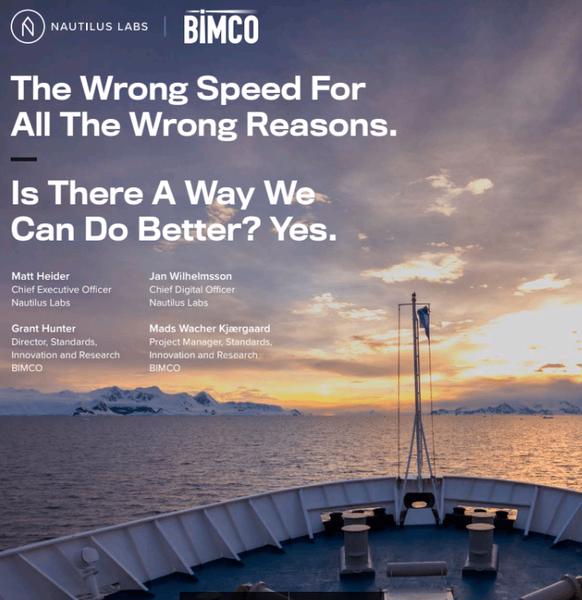BIMCO and Nautilus Labs urge overhaul of charter party frameworks
Global shipping association BIMCO and US maritime AI firm Nautilus Labs have jointly released a white paper, urging a reassessment of the prevailing charter party framework in the global shipping industry.
 PHOTO: White paper launched by Nautilus Labs and BIMCO. Nautilus Labs
PHOTO: White paper launched by Nautilus Labs and BIMCO. Nautilus Labs
Demonstrating inefficiencies in the current practices, the excess emissions, and no scope for a decrease in cost, the paper titled ‘The Wrong Speed For All The Wrong Reasons’ analyses data from live charter agreements and highlights the prevailing “sail-fast-then-wait” (SFTW) behaviour in the maritime industry.
The SFTW practice in vessels refers to traveling at high speed to arrive sooner, even if a berth is not available. This leads to excess fuel consumption and emissions, which further impacts the vessels’ Carbon Intensity Indicator (CII) ratings. Matt Heider, chief executive of Nautilus Labs and one of the authors of the paper said, “Voyage charters do not incentivise optimal arrival times. Instead, they encourage sail-fast-then-wait behaviour or require uneconomic static speeds.”
The paper suggests that modifications to existing charter party frameworks could eliminate 15-20% of the maritime industry's greenhouse gas (GHG) emissions without having any effects on fleet capacity. It sketches out changes it says have potential to save around 150-200 million mt/year of carbon dioxide emissions and bring down fuel costs.
By revising current charter party terms, owners and charterers can be incentivised to collaborate better to improve vessel efficiency to align vessels with the IMO’s carbon intensity target for 2030, argues the white paper.
“In the age of decarbonization, traditional key charter party clauses are no longer fit for purpose and need to be reviewed to address these systemic inefficiencies,” said Grant Hunter, director of standards, innovation and research at BIMCO.
BIMCO and Nautilus Labs argue that artificial Intelligence and machine learning have created a huge scope for new approaches that can optimise berth planning to replace the current "first-come, first-served" port operations, which often lead to fuel waste and unnecessary emissions.
“Charter party agreements create misaligned incentives between owners and charterers; with financial penalties at the center of their relationship, a zero-sum dynamic emerges,” explained Heider.
By Aparupa Mazumder
Please get in touch with comments or additional info to news@engine.online





